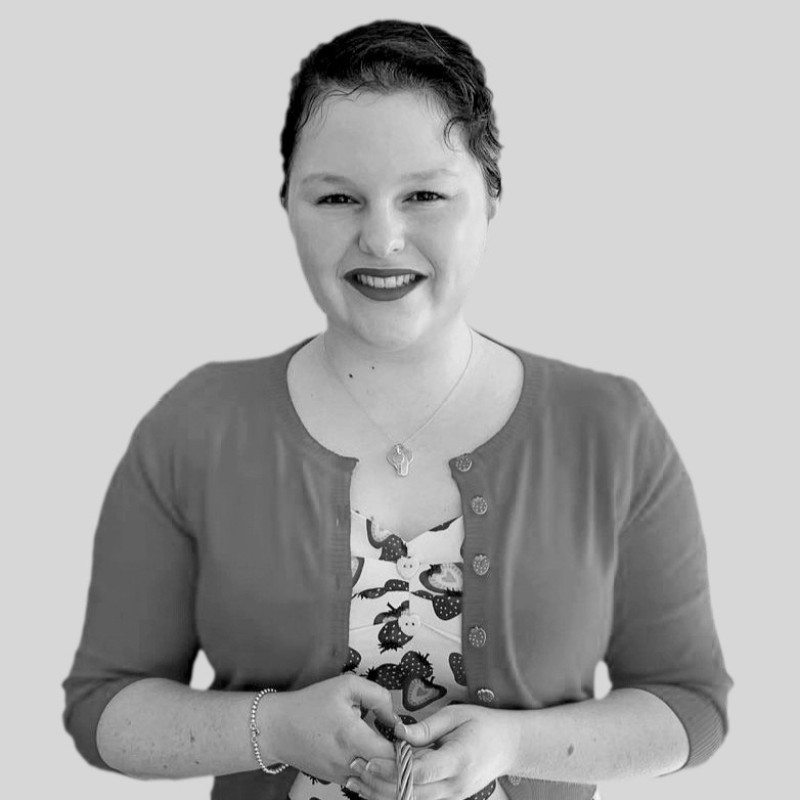 |
UMAC BOARD ELECTIONS 2025-2028 Candidate for: Ordinary Member Rebecca LushIntegrated Pathology Learning Centre, ICOM No. 146736 Nominators: Lynda Kelly (Australia), Claudia von der Borch (Australia) |
Biographical note
Rebecca Lush is the Curator of The University of Queensland’s Integrated Pathology Learning Centre (IPLC). In this role, she manages the strategic direction and ethical framework underpinning a human pathology collection. She is an experienced museum educator and curator who is passionate about medical history and public engagement. Prior to her current role, Rebecca worked across Queensland, New South Wales, and Victoria in various museum departments including education, curatorial, collection management, and heritage interpretation. Rebecca holds a Master of Museum and Heritage Studies from The University of Sydney and a Graduate Certificate in Educational Studies from The University of Queensland.
Qualifications for the position
I am an experienced and dedicated museum professional with extensive experience across curatorial, collection management, education, and public programming. Over the past seven years, I have worked within the university museum context as the Curator of The University of Queensland’s Integrated Pathology Learning Centre (IPLC). In this role, I oversee the university’s pathology specimen collection, ensuring its care and respectful use in both tertiary education and public engagement. I have successfully implemented collection care initiatives, developed interpretive frameworks for exhibitions, and led programming that aims to increase understanding of health and disease. This work has strengthened my skills in strategic planning, ethical collection stewardship, and fostering collaborative relationships with a community of care.
More recently, I have focused on strengthening connections between the museum, students, and academic staff. I have also implemented trauma-informed object-based learning as an innovative approach for both tertiary and secondary school student engagement. These initiatives have significantly increased accessibility to the collection and created meaningful opportunities for students to engage with complex content in a safe and supportive environment. By encouraging critical thinking and reflective dialogue, these programs have helped students develop a deeper appreciation of the historical, scientific, and human dimensions of health and disease. I am passionate about using university museum collections as catalysts for discussion, inviting visitors and students to explore challenging subjects and consider their relevance in today’s world.
Beyond my current role, I have worked in the museum and heritage sector more broadly since 2010. My diverse experiences include interpreting heritage places, coordinating regional art shows, implementing collection management systems, and contributing to exhibition research and development. This practical foundation has been supported by formal qualifications, including a Master of Museum and Heritage Studies from the University of Sydney and a Graduate Certificate in Educational Studies from the University of Queensland. Together, these experiences and academic achievements have equipped me with a comprehensive understanding of the responsibilities and opportunities that come with stewarding collections.
As a board member, I would bring strategic insight, a collaborative mindset, and a strong commitment to ethical leadership. I believe in fostering inclusive, transparent, and forward-thinking governance to ensure that university museums continue to thrive as vital spaces for learning, discovery, and community connection.
Main goals of candidacy
My candidacy for a position on the UMAC board is driven by a deep commitment to advancing the relevance of university museums and collections, as well as strengthening inclusivity and accessibility. In particular, I am passionate about contributing to UMAC’s presence in Object-Based Learning (OBL) Communities of Practice, as outlined in the UMAC Strategic Plan. I want to assist with advocating for university museums in these communities, positioning them as central hubs for object-based learning, interdisciplinary research, and community engagement. One of my main goals would be to explore how object-based learning programs within university museums can be better promoted and highlighted internationally. In addition, I would like to develop practical resources for the UMAC website that support practitioners of object-based learning and share best-practice examples from diverse contexts around the world.
Another central goal I would bring to the UMAC board is to strengthen the inclusivity and accessibility of university museums. I believe that these institutions should actively reflect and engage the diverse communities they serve. As a board member, I would advocate for initiatives that amplify underrepresented voices and encourage co-curation and shared storytelling. This includes supporting the development of multilingual and multisensory interpretation strategies, designing trauma-informed learning programs, and creating safe, welcoming environments where all visitors feel valued.
Finally, I am committed to fostering stronger global networks and professional development opportunities that support both relevance and inclusion. By encouraging cross-institutional collaborations, resource sharing, and capacity-building workshops, we can empower museum professionals to implement innovative and inclusive learning practices.
Through these interconnected goals, I hope to contribute to a future-focused UMAC board that champions the central role of university museums in education and society. I am excited by the opportunity to help shape UMAC’s global impact, ensuring that university museums remain vital, accessible, and transformative spaces for learning and connection well into the future.
